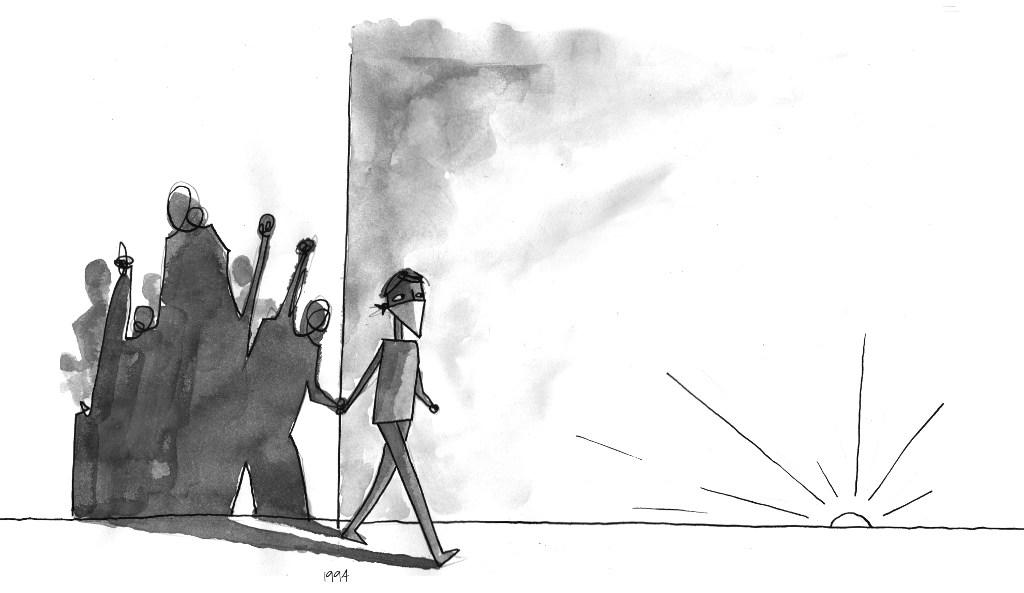Here is ahort description of how to use the timeline in a seminar or class. If you are looking for a detailed description, please see the Connecting the Dots brochure.
Spread a timeline (for example, from 1500 to today) out on the floor. Depending on the theme and time frame selected, you can choose between 6 and 12 quotations to distribute amongst the group. Because the quotations do not include their authors’ names or the date on which they were made, participants do not know to whom or to which period to attribute them.
Next, participants break into groups of two or three and discuss the quotations, trying to guess from which period and from whose perspective they come.
The quotations point to power structures and/or colonial continuities and inconsistencies relevant to the topic being discussed (e.g. racism). The statements represent two sides: ways of speaking about the ‘other’ and one’s ‘own’ that dominate in the ‘West’, and statements that criticise racism or derive from (e.g. anti-colonial) resistance.
Choose your collection of quotations well. They should include voices that are not usually heard side by side. Bringing them together in this way highlights the imprint of the colonial past on today’s dominant views (for example, on the Global South and People of Color). At the same time, resistant voices show us ways of rethinking history, the present and future.
On the one hand, working with a post-colonial timeline allows us to disseminate marginalised knowledges and build audiences for these perspectives. On the other, by encountering multiple perspectives, participants learn both about diversity and about the social construction of knowledge and the world. We have selected the quotations in order to surprise, question patterns of thinking and empower. For many participants, this process of learning is an emotional experience: it allows them to connect aha! moments (e.g. about a statement made by Nicolas Sarcozy in 2007 that many attribute to the 18th century) with knowledge transfer (e.g. about the fact that Hegel, as a representative of the Enlightenment, participated in the establishment of racial theory in Germany). Through the process, mainstream knowledge systems are put into question and participants’ curiosity is aroused as is their eagerness to continue exploring the topics by themselves.
